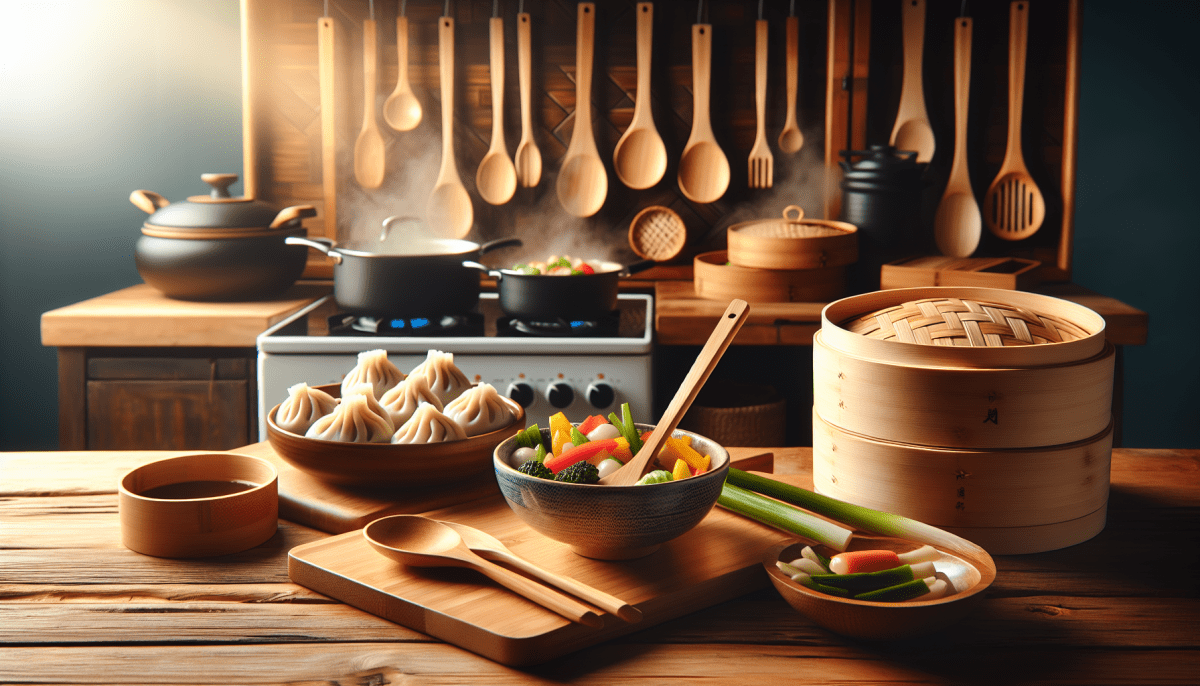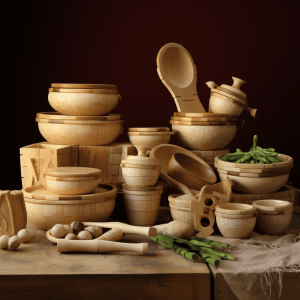Bamboo cookware has gained significant popularity in recent years due to its eco-friendly properties. This sustainable material is celebrated for its minimal impact on the environment, making it an excellent choice for those looking to reduce their carbon footprint. Unlike traditional cookware options that are often made from non-renewable resources such as metal or plastic, bamboo cookware is renewable and biodegradable.
One of the key reasons bamboo cookware is considered eco-friendly is because bamboo is one of the fastest-growing plants on the planet. It can grow up to three feet in just 24 hours, making it an easily renewable resource. Additionally, bamboo requires very little water to thrive, unlike other plants that may require regular irrigation. By choosing bamboo cookware, you are supporting a sustainable industry that helps in the conservation of water resources.
Furthermore, bamboo cookware is chemical-free, as bamboo does not require pesticides or fertilizers to grow. This means that there are no harmful chemicals seeping into your food during cooking. Bamboo also has natural antimicrobial properties, making it resistant to bacteria and other pathogens. This makes bamboo cookware a healthier option for both you and the environment.
Lastly, bamboo cookware is durable and long-lasting. It can withstand high heat and is resistant to warping, cracking, or splintering. This means that you won't need to replace your bamboo cookware as frequently as other types of cookware that may wear out or become damaged over time. By investing in bamboo cookware, you can reduce the amount of waste generated from disposable or short-lived cookware products, contributing to a more sustainable lifestyle.
Exploring the Benefits of Cooking with Bamboo
Bamboo cookware has gained popularity in recent years due to its numerous benefits. Whether you are a seasoned chef or just starting out in the world of cooking, utilizing bamboo utensils and cookware can be a game-changer in your kitchen. Here, we delve into the various advantages of cooking with bamboo and why it is an essential addition to your culinary arsenal.
First and foremost, bamboo cookware is known for its incredible strength and durability. Bamboo is a highly sustainable and renewable resource, making it a great eco-friendly alternative to traditional cookware materials. Its natural strength allows bamboo utensils to withstand rigorous use without breaking or scratching, ensuring they can withstand high temperatures and heavy-duty cooking.
In addition to its durability, bamboo is also naturally antibacterial and antimicrobial. This makes it an incredibly hygienic choice for kitchen tools and cookware. Unlike other materials like plastic or metal, bamboo naturally resists the growth of bacteria and germs, making it a safe option for food preparation and cooking. Furthermore, bamboo utensils are non-reactive, which means they won't react with acidic ingredients or alter the taste of your food, ensuring you maintain the flavors of your dishes.
Moreover, bamboo cookware is incredibly versatile and suitable for a wide range of cooking techniques. From stir-frying to steaming, bamboo steamers and cookware offer excellent heat distribution, allowing for even and consistent cooking. Bamboo utensils are also gentle on non-stick surfaces, ensuring they won't scratch or damage your cookware. Additionally, bamboo's natural heat resistance prevents it from getting too hot to handle, offering a comfortable cooking experience.
Overall, the benefits of cooking with bamboo are extensive, making it a must-have addition to any kitchen. From its eco-friendly properties to its durability, antibacterial nature, and versatility, bamboo cookware truly stands out. By incorporating bamboo utensils and cookware into your culinary endeavors, you can enhance the quality of your cooking and embrace a more sustainable and healthier approach to your meals.
Choosing the Right Bamboo Cookware for Your Kitchen
Bamboo cookware has gained popularity in recent years due to its eco-friendly and sustainable properties. Not only is it an excellent alternative to traditional cookware materials, but bamboo also adds a touch of natural elegance to your kitchen. However, selecting the right bamboo cookware can be a daunting task for beginners. Here are some essential tips to help you make the right choice.
1. Quality and Durability
When purchasing bamboo cookware, it is crucial to consider its quality and durability. Look for products made from high-quality bamboo that is hard and sturdy. Ensure that the bamboo is well polished, without any cracks or splintering. This ensures that your cookware will last for a long time and withstand the rigors of everyday cooking.
2. Non-Toxic and Safe
One of the advantages of bamboo cookware is its non-toxic nature. Bamboo is a natural material that does not leach harmful chemicals into your food. However, it is still essential to choose cookware that is finished with non-toxic coatings or finishes, such as food-grade varnish or natural oils, to ensure maximum safety for your family.
3. Heat Resistance
Check the heat resistance of your bamboo cookware before purchasing. Most bamboo cookware is suitable for stovetop cooking, but it is important to verify the manufacturer's guidelines. Additionally, ensure that the handles are heat-resistant and provide a comfortable grip to prevent accidents while cooking.
Mastering the Art of Cooking with Bamboo: Pro Tips for Beginners
Bamboo cookware offers a unique and eco-friendly way to enhance your culinary skills. If you're just starting out with bamboo cookware, here are some essential tips to ensure a successful and enjoyable cooking experience:
1. Soak and prepare your bamboo utensils:
Prior to your first use, it's important to soak your bamboo utensils, such as steamer baskets or skewers, in water for at least 30 minutes. This helps to prevent the bamboo from drying out and reduce the chances of splintering. Additionally, lightly oil these utensils to create a protective layer that enhances their longevity.
2. Season your bamboo steamer:
If you're using a bamboo steamer, it's crucial to season it before cooking. To do this, simply line the steamer with cabbage leaves or parchment paper, and then steam it for about 30 minutes. This process helps to remove any potential odors or flavors from the steamer and ensures your food will taste delicious and clean.
3. Maintain proper care and cleaning:
To extend the lifespan of your bamboo cookware, it's important to follow the correct care and cleaning procedures. Always hand wash your utensils with mild soap and warm water. Avoid using abrasive sponges or brushes that could damage the bamboo. After cleaning, towel dry your bamboo cookware immediately to prevent moisture retention.
4. Avoid extreme temperature changes:
Bamboo cookware is sensitive to abrupt temperature changes, so it's important to avoid exposing it to extreme conditions. For instance, avoid placing hot bamboo utensils directly under cold running water as it can cause cracking. Gradual temperature changes are always best to preserve the quality and durability of your bamboo cookware.
With the above tips in mind, you'll be well-equipped to embark on your bamboo cookware journey. Enjoy exploring the exciting possibilities that come with this sustainable and versatile cooking alternative!
Bamboo Cookware
Sustainable and Stylish Cookware to Elevate Your Kitchen Experience
Product information
Product Review Score
4.38 out of 5 stars
126 reviews


